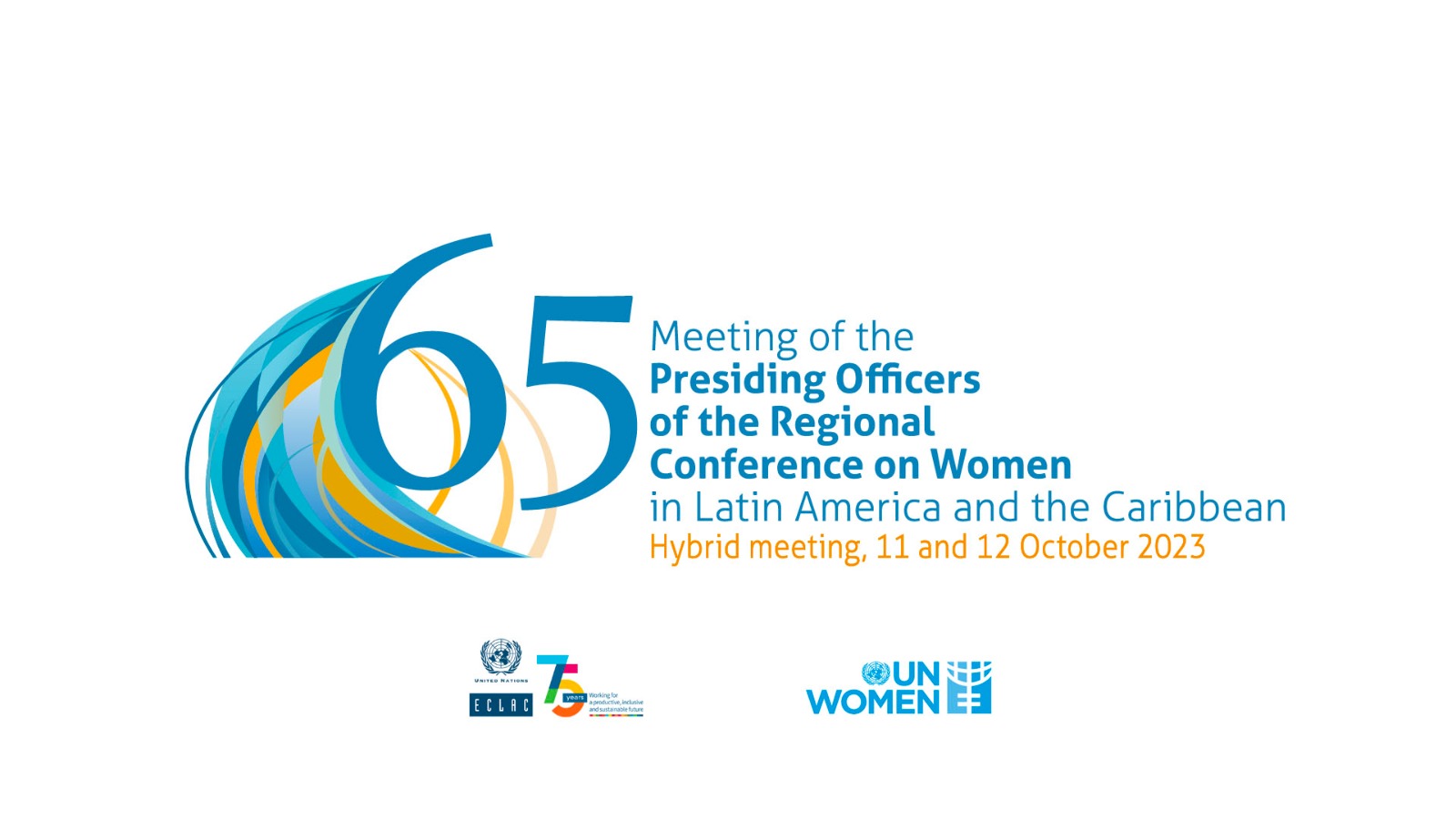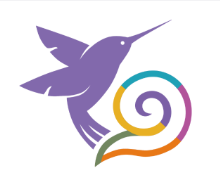Accelerating Implementation of the Buenos Aires Commitment is an Opportunity to Improve the Lives of Women, Adolescents and Girls
Work area(s)
Today marked the inauguration of the Sixty-fifth Meeting of the Presiding Officers of the Regional Conference on Women in Latin America and the Caribbean, a hybrid event that is taking place through Thursday from ECLAC’s headquarters in the Chilean capital.

Accelerating the implementation of the Buenos Aires Commitment – adopted by ECLAC’s Member States in November 2022 and which promotes comprehensive care policies and systems in all Latin American and Caribbean countries – is an opportunity to improve the lives of women, adolescents and girls in the region and foster countries’ development and the well-being of society as a whole, according to Women’s Affairs Ministers and United Nations organization representatives participating in today’s inauguration of the Sixty-fifth Meeting of the Presiding Officers of the Regional Conference on Women in Latin America and the Caribbean.
This gathering seeks to follow up on countries’ commitments included in the Regional Gender Agenda – forged over 45 years at the Regional Conference on Women in Latin America and the Caribbean – and in the 2030 Agenda for Sustainable Development, for guaranteeing the rights of women, female adolescents and girls in all their diversity, the exercise of their autonomy and the achievement of gender equality.
The meeting – organized using a hybrid format by the Economic Commission for Latin America and the Caribbean (ECLAC), as Secretariat of the Conference, in coordination with the United Nations Entity for Gender Equality and the Empowerment of Women (UN Women) – was inaugurated by Daniel Titelman, Director of ECLAC’s Economic Development Division, on behalf of Executive Secretary José Manuel Salazar-Xirinachs; María-Noel Vaeza, Regional Director for the Americas and the Caribbean of UN Women; and Ayelén Mazzina, Minister for Women, Gender and Diversity of Argentina, in the country’s capacity as Chair of the Presiding Officers of the Regional Conference on Women in Latin America and the Caribbean.
“Accelerating the implementation of the Buenos Aires Commitment is an opportunity for making progress on public policies that improve the lives of people, particularly women, female adolescents and girls,” Daniel Titelman stated on behalf of ECLAC’s highest authority. This entails adopting intersectional strategies, recognizing the unfair distribution of care work, and promoting recovery policies with affirmative actions to achieve substantive equality. “Investing in the care society constitutes a significant and revitalizing change that the region urgently needs in order to make progress on gender equality. This would also contribute significantly to creating jobs and invigorating the overall economy,” he affirmed.
In her remarks, Minister Ayelén Mazzina called for defending what has been achieved and continuing to move forward on implementing the Regional Gender Agenda ahead of the next Regional Conference on Women. “In the Buenos Aires Commitment we have recognized care as work, as a need and as a right. We have called for prioritizing the sustainability of life and of the planet in a development model that would recognize care as part of the human rights fundamental to the well-being of the population as a whole,” she said, taking advantage of the opportunity to call for maintaining peace in the world and defending women and children who are victims in conflicts, in compliance with the UN Security Council’s Resolution 1325 (2000), and other resolutions pertaining to the women, peace and security agenda.
Mazzina added: “We have solid foundations so that none of the rights that we have secured can be violated. In a context of surging anti-democratic sentiment, we must defend what has been achieved and keep making progress. The institutional framework on gender does not occur in a vacuum. It occurs with a women’s movement organized at the regional level and with political will. The institutional framework has put women and gender-diverse persons at the center of policies: it has positioned them as political subjects, with rights, and has enabled them to move from being beneficiaries of public policies to being the protagonists.”
During the meeting’s opening session, it was stressed that the dynamic of low growth in GDP and employment that Latin America and the Caribbean has endured is worsening the deep economic and gender inequalities seen along different dimensions, such as labor participation, income, persistence of poverty, labor informality and access to social protection systems.
According to ECLAC’s data, men’s labor participation in the region (75.3%) is 20 percentage points higher than that of women (51.5%). This means that 1 out of every 2 women is outside the workforce in Latin America and the Caribbean, while that proportion among men is 1 out of every 4.
In the case of the unemployment rate estimated for 2023, there is a three-point difference: 9.1% among women versus 6.2% among men.
Indicators from the Gender Equality Observatory for Latin America and the Caribbean, coordinated by ECLAC, show how between 2019 and 2021, the percentage of women without their own income went from 26% to 27.8%, rising 1.8 percentage points. In the case of men, the population without its own income grew by 1.6 percentage points, but from a much lower level: from 11.2% to 12.8%. This means that 1 out of every 3 women lacks her own income in Latin America and the Caribbean.
In addition, ECLAC underscores, advances in time-use measurement in the region have revealed that women spend 19.6% of their time on domestic and unpaid care work, whereas the percentage for men is just 7.3%. This means that women spend nearly triple the time on these activities than men do. In at least 10 countries where this has been measured, domestic and unpaid care work represents between 15.9% and 27.6% of GDP. And 74% of this contribution is made by women.
In this regard, María-Noel Vaeza emphasized that “improving women’s living conditions involves understanding poverty as a multidimensional concept, which is particularly manifested in time poverty. For that reason, the Buenos Aires Commitment to the care society is the biggest step forward that we have taken in the region to move towards the implementation and consolidation of comprehensive care systems in all countries of Latin America and the Caribbean. This gathering today in Santiago allows us to see how far we have gotten and, above all, to continue working alongside governments, civil society, the private sector and international organizations on solutions that would enable women’s full and effective incorporation into all aspects of life in society, and thereby effectively accelerate the goal of gender equality and the empowerment of all women in the region and in the world, as contemplated by the 2030 Agenda.”
At this 65th meeting of the Presiding Officers, delegations will exchange viewpoints on the progress made to fulfill the Buenos Aires Commitment and on the issues to be addressed at the XVI Regional Conference on Women in Latin America and the Caribbean, which will be held in Mexico in 2025.
Participants will also report on progress regarding the Regional Fund in Support of Women’s and Feminist Organizations and Movements, and will present the initiative for a biregional pact for care between Latin America and the Caribbean and the European Union.
Finally, a special session will take place for a regional consultation prior to the 68th session of the UN’s Commission on the Status of Women (CSW68), the priority theme of which is “Accelerating the achievement of gender equality and the empowerment of all women and girls by addressing poverty and strengthening institutions and financing with a gender perspective.”
As demonstrated in the regional report by UN Women entitled Strengthening public financial management to achieve gender equality and women’s empowerment: Progress and challenges in Latin America, only 10 countries in the region reported having made progress on systems to monitor and allocate public funds for gender equality and women’s empowerment in line with indicator 5.c.1 in the 2030 Agenda. In this sense, transforming and reinforcing systems, institutions and financing is critical for eradicating poverty and achieving gender equality.
The Regional Conference on Women in Latin America and the Caribbean, which is a subsidiary body of ECLAC, is the main intergovernmental forum on women’s rights and gender equality in the region.
Related event

Sixty-fifth meeting of the Presiding Officers of the Regional Conference on Women in Latin America and the Caribbean
The 65th Meeting of the Presiding Officers of the Regional Conference on Women in Latin America and the Caribbean was held in hybrid format on 11 and 12 October 2023, at the Economic Commission for…
Related content

Women’s Affairs Ministers and Authorities from Latin America and the Caribbean Will Meet to Reaffirm the Commitment to Gender Equality and Moving Towards the Care Society
Women’s Affairs Ministers and Authorities from Latin America and the Caribbean Will Meet to Reaffirm the Commitment to Gender Equality and Moving Towards the Care Society

Sixty-fifth meeting of the Presiding Officers of the Regional Conference on Women in Latin America and the Caribbean
The 65th Meeting of the Presiding Officers of the Regional Conference on Women in Latin America and the Caribbean was held in hybrid format on 11 and 12 October 2023, at the Economic Commission for…

XVI Regional Conference on Women in Latin America and the Caribbean
The sixteenth session of the Regional Conference on Women in Latin America and the Caribbean was held at the Centro Cultural Universitario Tlatelolco in Mexico City, from 12 to 15 August 2025, and…
Related link(s)
Country(ies)
- Latin America and the Caribbean
Contact
Public Information Unit
- prensa@cepal.org
- (56 2) 2210 2040
